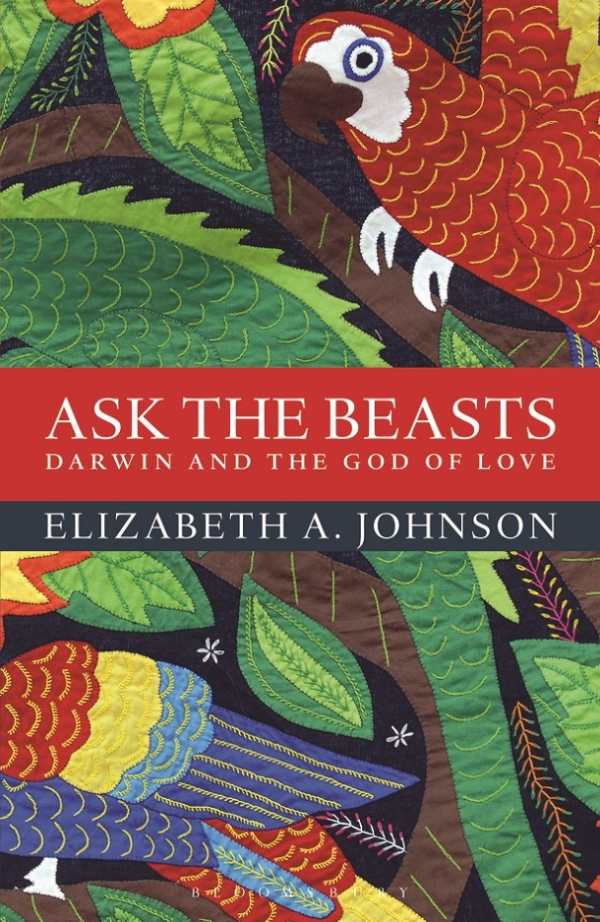
Ask the Beasts
Darwin and the God of Love
Rarely are theological works so lucidly constructed and gorgeously formed.
Ask the Beasts, a new theological effort from Fordham professor Elizabeth A. Johnson, pursues questions of humanity’s interdependence with and divinely charged responsibilities toward the rest of natural creation. With palpable affection for the created world, Johnson makes a passionate case for treating the ecosystem with care and awareness, as a matter of faith.
Against the modern tendency to treat religion and science at odds, Johnson argues for putting the disciplines into mutually beneficial conversation. As a vehicle, she chooses a seminal text from each tradition: Darwin is allowed to speak on behalf of science via The Origin of Species, and the Nicene Creed becomes Christianity’s guiding text.
Johnson’s work should be lauded for the intelligence with which she approaches the topic of evolution. She not only addresses Darwin’s work with respect and erudition but is also able to draw out from it declarations which make melding his work with words on holiness seem entirely natural.
“Charles Darwin,” Johnson says, “was a beholder,” a man who looked at the natural world and found tremendous meaning in it. Seen through her eyes, his work brims with a sense of interdependence and humility, a constant hosanna before a world that he never outright denied was created. His work becomes poetic, even psalmic, beneath her fingers, as he describes “with awe and empathy … the sleek structure of the beetle … the hummingbirds’ ills in relation to the flowers they sip.”
Johnson is aware, however, that Darwin’s work has been used to argue the incompatibility of evolution with the exercise of faith. She uses the Nicene Creed to remind readers that Christianity, first and foremost, concerned itself with a created world in which God was vitally interested. Incarnation becomes proof of God’s continual and intimate interaction with the world, before which any cruelty towards nature becomes perverse, a sin of the most basic order. Her work anticipates a final redemption in which nothing created is lost, except for that which we are stamping out with abandon. A final call for ecological conversion, for “falling in love with the Earth as an inherently valuable, living community in which we participate … in tune with the living God … who cherishes it,” readies an absorbed readership for practical theological applications.
Johnson’s work is vivifying, encouraging not only Christian thoughtfulness but also reverence toward the ecosystem on its behalf. An overdue reconciliation of religious belief to scientific cognizance, Ask the Beasts should become the benchmark for conversations between the disciplines.
Reviewed by
Michelle Anne Schingler
Disclosure: This article is not an endorsement, but a review. The publisher of this book provided free copies of the book to have their book reviewed by a professional reviewer. No fee was paid by the publisher for this review. Foreword Reviews only recommends books that we love. Foreword Magazine, Inc. is disclosing this in accordance with the Federal Trade Commission’s 16 CFR, Part 255.
